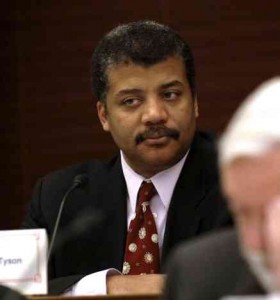 What were you interested in when you were 12? And do you incorporate it into your work today?
What were you interested in when you were 12? And do you incorporate it into your work today?
Maybe you should.
Our newest favorite scientist, astrophysicist Neil deGrasse Tyson, loved looking through telescopes at the age of 12. Now age 53, he hasn’t stopped yet.
Spotlighted by Carl Zimmer recently in Playboy magazine, the director of the Rose Center for Earth and Space at the American Museum of Natural History started out with a 2.4-inch refractor with three eyepieces and a solar projection screen. Writes Zimmer:
Tyson would run an extension cord across [his Bronx apartment building]’s two-acre roof into a friend’s apartment window. Fairly often, someone would call the police. He charmed the cops with the rings of Saturn.
His shenanigans were not without purpose. Three years later he would give his first hour-long lecture to fifty adults, fulfilling his wish to talk to people about the beauty of the universe.
We can really feel his passion for studying the cosmos. In fact he once said, “For me, talking about the universe was like breathing.”





